According to Dr Surendra Dhelia, joint secretary of the Society for Right to Die with Dignity, thanks to the Aruna Shanbuag judgment, the Living Will, or what in the US is also known as the Advanced Health Care Directive, may now find popular acceptance.
With the Supreme Court setting out guidelines for passive euthanasia in its judgment in the Aruna Shanbaug case, the doors have opened for the Living Will — a legal mechanism through which individuals can set down in advance the conditions in which they would like life support to be withdrawn.
According to Dr Surendra Dhelia, joint secretary of the Society for Right to Die with Dignity, thanks to the Aruna Shanbuag judgment, the Living Will, or what in the US is also known as the Advanced Health Care Directive, may now find popular acceptance. “Wouldn’t you want to decide your quality of life, whether life-extending treatments are worth the pain they cause? A Living Will empowers a patient when he is incapacitated. I believe it will find many takers.”
A Living Will is a document which specifies future circumstances of severe ill health when all remedial measures are futile, and when the individual prefers not to prolong life with life support systems and medicine. The Will specifies a request to the doctor in the future to enable an easier and quicker passage to death. A Living Will can be executed by an adult in full possession of his decision-making capacity, and without coercion.
An individual may, for instance, specify that he be allowed to die if his heart and/or brain stem stop functioning, or when there is any irremediable disease which renders him/her incapable of a useful existence. An individual can also specify the number of days in coma until all life support systems may be withdrawn.
A Living Will can be as specific as a patient wishes it to be.
“Aruna Shanbuag’s case reached the point it did because the main issue was activist Pinki Virani’s locus standi — the key question being whether her word could be considered in deciding if Shanbaug must live. But if Shanbug had made a Living Will in which she had stated just when and how she should die, the case would not have existed at all,” explains Dr Dhelia.
The SC judgement has laid out some parameters for deciding whether the patient is “eligible” for passive euthanasia. In case of a disagreement between the patient’s relatives and a doctor on how — and whether — a patient’s treatment must continue, the matter will be decided by the concerned high court which will set up a panel of doctors to examine the patient’s condition.
In this changed scenario, many doctors and lawyers believe that a Living Will can ensure that the patient’s wishes are taken into consideration when deciding about passive euthanasia. Justice Vallabh Mohta, senior advocate, Supreme Court, says that the Living Will did not find much traction till now because the Law Commission in 2006 opined that the idea was illogical, too far-fetched and had high chances of manipulation.
In fact, the judge feels that chances of manipulation are lesser when there is a Living Will. “If a person, say, with a malignant tumour refuses treatment, he is not booked for attempt to suicide. A Living Will means the same thing. Actually there is dire need for it - it enables you to respect a patient’s wishes even after he is incapable of expression. There are loopholes to every existing law. But the chances of manipulation in a Living Will are not very high. It can be changed as many times, as per the individual’s wishes, and can also be declared void by him at any point,” explains Justice Mohta.
One may argue that a person making a Living Will cannot possibly specify every single detail of the complication if s/he were to fall ill in the future. Preparing a durable power of attorney takes care of that loophole, too, adds Justice Mohta. “In a durable power of attorney, you can specify that only a particular family member may decide the course of treatment, or choose death, in your interest.”
How they die elsewhere
- In the US, most states recognise Living Wills or the designation of a health care proxy - where someone is appointed by the individual to make decisions on their behalf when they are incapacitated.
- In England and Wales too, people may make a Living Will or appoint a proxy. Last year, a study showed demand for Living Wills had trebled in the two previous years, indicating the increasing number of people concerned about the way in which their terminal illness will be managed.
- In the Netherlands, patients and potential patients can specify the circumstances under which they would want euthanasia for themselves. They do this by providing a written euthanasia directive.
- In 2007, Living Wills found acceptance in Thailand’s Health Act. An individual can decide in advance what medical care and treatment she must receive if she ever becomes unable to specify those wishes herself.
![submenu-img]() Balancing Risk and Reward: Tips and Tricks for Good Mobile Trading
Balancing Risk and Reward: Tips and Tricks for Good Mobile Trading![submenu-img]() Balmorex Pro [Is It Safe?] Real Customers Expose Hidden Dangers
Balmorex Pro [Is It Safe?] Real Customers Expose Hidden Dangers![submenu-img]() Sight Care Reviews (Real User EXPERIENCE) Ingredients, Benefits, And Side Effects Of Vision Support Formula Revealed!
Sight Care Reviews (Real User EXPERIENCE) Ingredients, Benefits, And Side Effects Of Vision Support Formula Revealed!![submenu-img]() Java Burn Reviews (Weight Loss Supplement) Real Ingredients, Benefits, Risks, And Honest Customer Reviews
Java Burn Reviews (Weight Loss Supplement) Real Ingredients, Benefits, Risks, And Honest Customer Reviews![submenu-img]() Gurucharan Singh is still unreachable after returning home, says Taarak Mehta producer Asit Modi: 'I have been trying..'
Gurucharan Singh is still unreachable after returning home, says Taarak Mehta producer Asit Modi: 'I have been trying..'![submenu-img]() RBSE 12th Result 2024 Live Updates: Rajasthan Board Class 12 results DECLARED, get direct link here
RBSE 12th Result 2024 Live Updates: Rajasthan Board Class 12 results DECLARED, get direct link here![submenu-img]() IIT graduate Indian genius ‘solved’ 161-year old maths mystery, left teaching to become CEO of…
IIT graduate Indian genius ‘solved’ 161-year old maths mystery, left teaching to become CEO of…![submenu-img]() RBSE 12th Result 2024 Live Updates: Rajasthan Board Class 12 results to be announced soon, get direct link here
RBSE 12th Result 2024 Live Updates: Rajasthan Board Class 12 results to be announced soon, get direct link here![submenu-img]() Meet doctor who cracked UPSC exam to become IAS officer but resigned after few years due to...
Meet doctor who cracked UPSC exam to become IAS officer but resigned after few years due to...![submenu-img]() IIT graduate gets job with Rs 45 crore salary package, fired after few years, buys Narayana Murthy’s…
IIT graduate gets job with Rs 45 crore salary package, fired after few years, buys Narayana Murthy’s…![submenu-img]() DNA Verified: Is CAA an anti-Muslim law? Centre terms news report as 'misleading'
DNA Verified: Is CAA an anti-Muslim law? Centre terms news report as 'misleading'![submenu-img]() DNA Verified: Lok Sabha Elections 2024 to be held on April 19? Know truth behind viral message
DNA Verified: Lok Sabha Elections 2024 to be held on April 19? Know truth behind viral message![submenu-img]() DNA Verified: Modi govt giving students free laptops under 'One Student One Laptop' scheme? Know truth here
DNA Verified: Modi govt giving students free laptops under 'One Student One Laptop' scheme? Know truth here![submenu-img]() DNA Verified: Shah Rukh Khan denies reports of his role in release of India's naval officers from Qatar
DNA Verified: Shah Rukh Khan denies reports of his role in release of India's naval officers from Qatar![submenu-img]() DNA Verified: Is govt providing Rs 1.6 lakh benefit to girls under PM Ladli Laxmi Yojana? Know truth
DNA Verified: Is govt providing Rs 1.6 lakh benefit to girls under PM Ladli Laxmi Yojana? Know truth![submenu-img]() Urvashi Rautela mesmerises in blue celestial gown, her dancing fish necklace steals the limelight at Cannes 2024
Urvashi Rautela mesmerises in blue celestial gown, her dancing fish necklace steals the limelight at Cannes 2024![submenu-img]() Kiara Advani attends Women In Cinema Gala in dramatic ensemble, netizens say 'who designs these hideous dresses'
Kiara Advani attends Women In Cinema Gala in dramatic ensemble, netizens say 'who designs these hideous dresses'![submenu-img]() Influencer Diipa Büller-Khosla looks 'drop dead gorgeous' in metallic structured dress at Cannes 2024
Influencer Diipa Büller-Khosla looks 'drop dead gorgeous' in metallic structured dress at Cannes 2024![submenu-img]() Kiara Advani stuns in Prabal Gurung thigh-high slit gown for her Cannes debut, poses by the French Riviera
Kiara Advani stuns in Prabal Gurung thigh-high slit gown for her Cannes debut, poses by the French Riviera![submenu-img]() Heeramandi star Taha Shah Badussha makes dashing debut at Cannes Film Festival, fans call him ‘international crush’
Heeramandi star Taha Shah Badussha makes dashing debut at Cannes Film Festival, fans call him ‘international crush’![submenu-img]() Haryana Political Crisis: Will 3 independent MLAs support withdrawal impact the present Nayab Saini led-BJP government?
Haryana Political Crisis: Will 3 independent MLAs support withdrawal impact the present Nayab Saini led-BJP government?![submenu-img]() DNA Explainer: Why Harvey Weinstein's rape conviction was overturned, will beleaguered Hollywood mogul get out of jail?
DNA Explainer: Why Harvey Weinstein's rape conviction was overturned, will beleaguered Hollywood mogul get out of jail?![submenu-img]() What is inheritance tax?
What is inheritance tax?![submenu-img]() DNA Explainer: What is cloud seeding which is blamed for wreaking havoc in Dubai?
DNA Explainer: What is cloud seeding which is blamed for wreaking havoc in Dubai?![submenu-img]() DNA Explainer: What is Israel's Arrow-3 defence system used to intercept Iran's missile attack?
DNA Explainer: What is Israel's Arrow-3 defence system used to intercept Iran's missile attack?![submenu-img]() Gurucharan Singh is still unreachable after returning home, says Taarak Mehta producer Asit Modi: 'I have been trying..'
Gurucharan Singh is still unreachable after returning home, says Taarak Mehta producer Asit Modi: 'I have been trying..'![submenu-img]() ‘Jo mujhse bulwana chahte ho…’: Angry Dharmendra lashes out after casting his vote in Lok Sabha Elections 2024
‘Jo mujhse bulwana chahte ho…’: Angry Dharmendra lashes out after casting his vote in Lok Sabha Elections 2024![submenu-img]() Deepika Padukone spotted with her baby bump as she steps out with Ranveer Singh to cast her vote in Lok Sabha elections
Deepika Padukone spotted with her baby bump as she steps out with Ranveer Singh to cast her vote in Lok Sabha elections![submenu-img]() Jr NTR surprises fans on birthday, announces NTR 31 with Prashanth Neel, shares details
Jr NTR surprises fans on birthday, announces NTR 31 with Prashanth Neel, shares details ![submenu-img]() 86-year-old Shubha Khote wins hearts by coming out to cast her vote in Lok Sabha elections, says meant to inspire voters
86-year-old Shubha Khote wins hearts by coming out to cast her vote in Lok Sabha elections, says meant to inspire voters![submenu-img]() Watch viral video: Man gets attacked after trying to touch ‘pet’ cheetah; netizens react
Watch viral video: Man gets attacked after trying to touch ‘pet’ cheetah; netizens react![submenu-img]() Real story of Lahore's Heermandi that inspired Netflix series
Real story of Lahore's Heermandi that inspired Netflix series![submenu-img]() 12-year-old Bengaluru girl undergoes surgery after eating 'smoky paan', details inside
12-year-old Bengaluru girl undergoes surgery after eating 'smoky paan', details inside![submenu-img]() Viral video: Pakistani man tries to get close with tiger and this happens next
Viral video: Pakistani man tries to get close with tiger and this happens next![submenu-img]() Owl swallows snake in one go, viral video shocks internet
Owl swallows snake in one go, viral video shocks internet


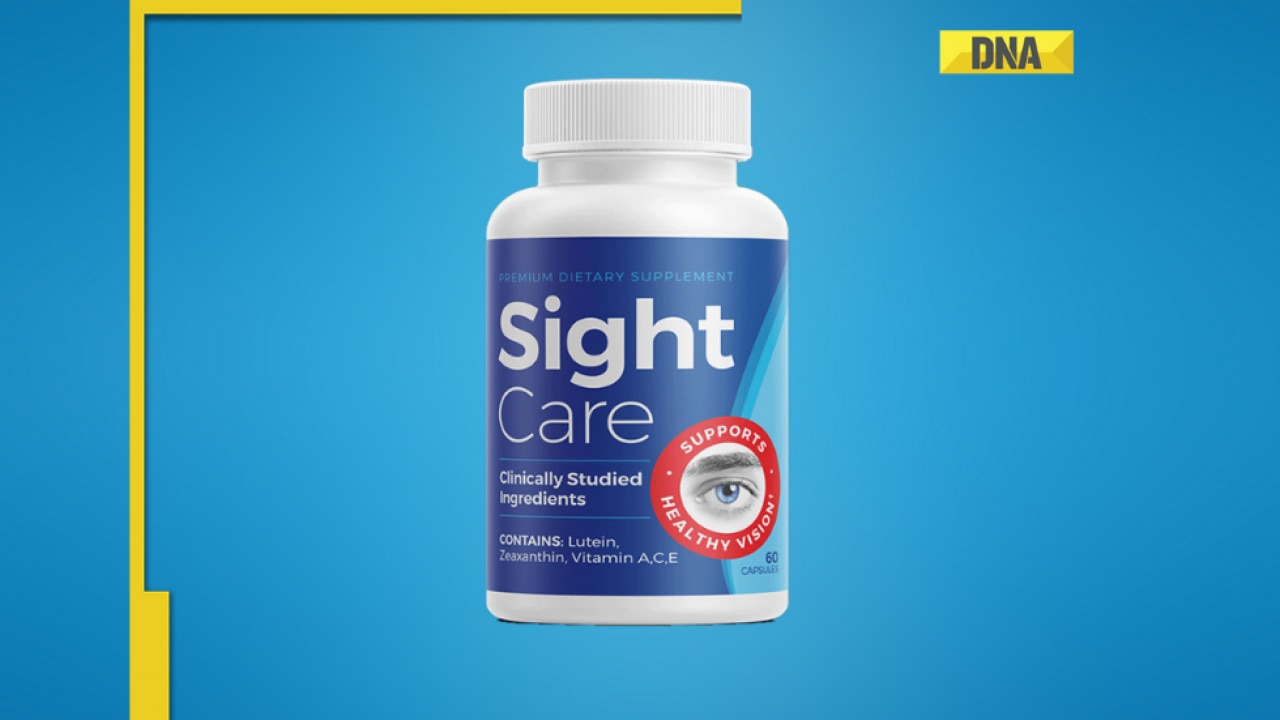

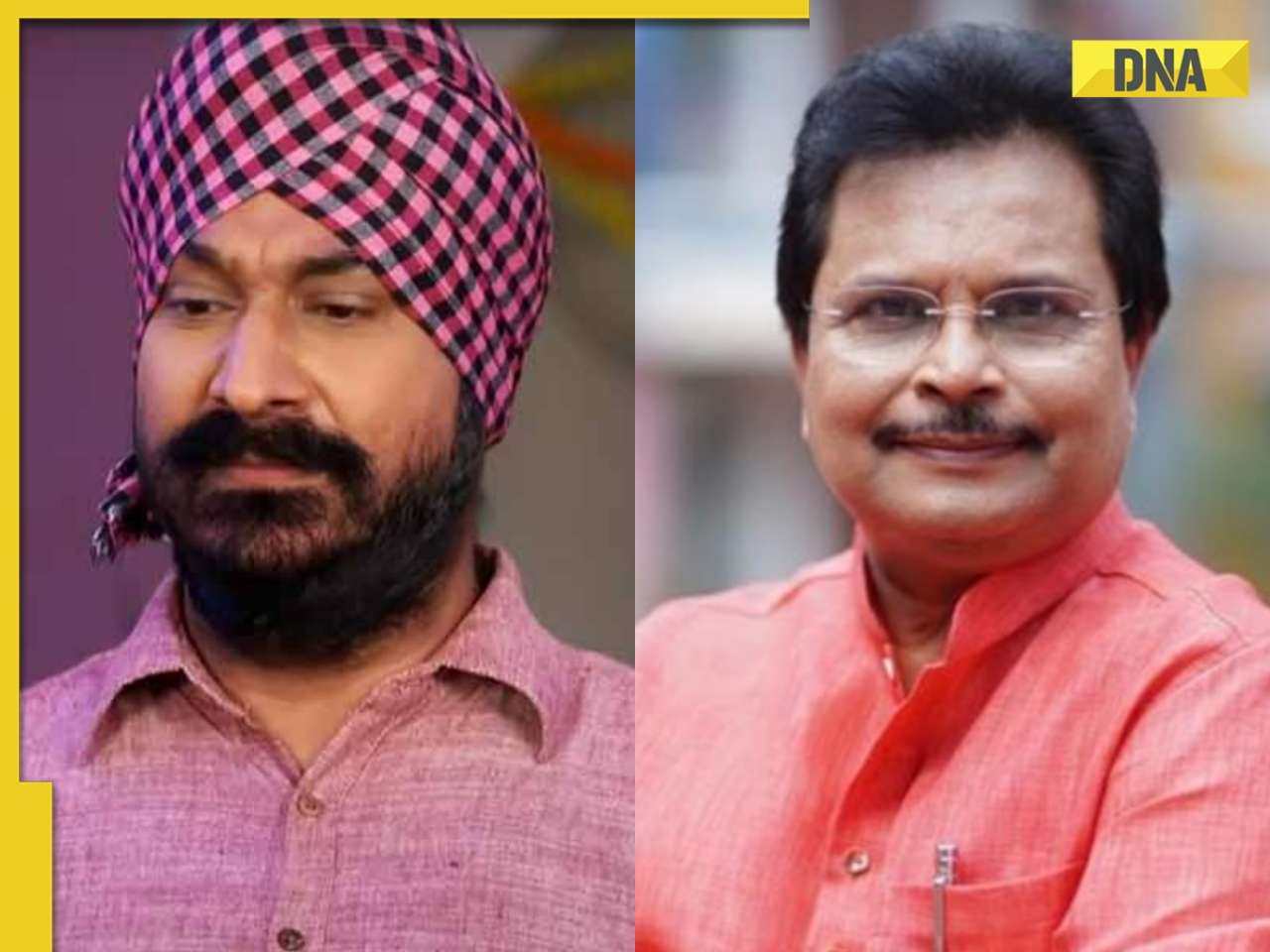

























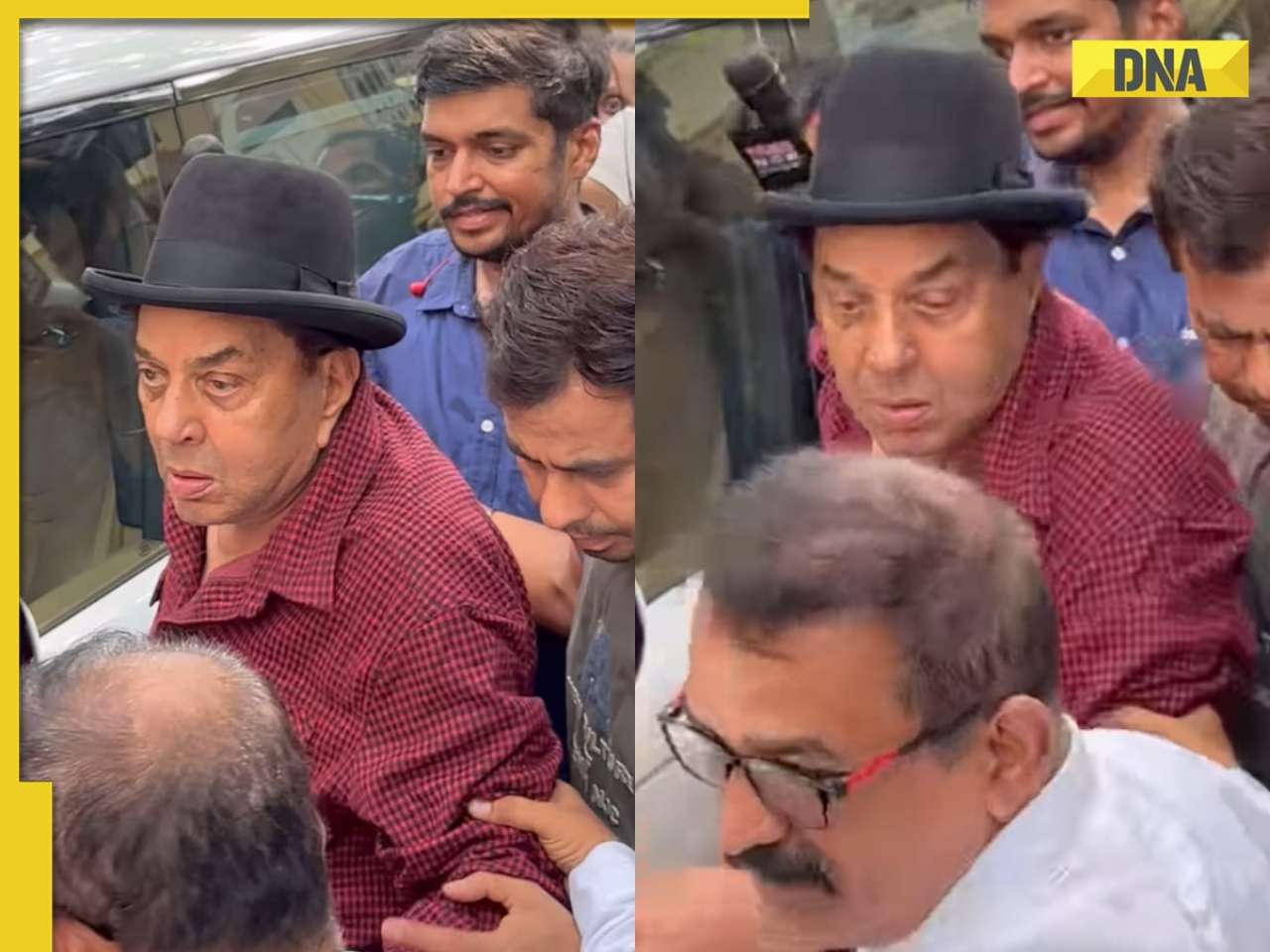

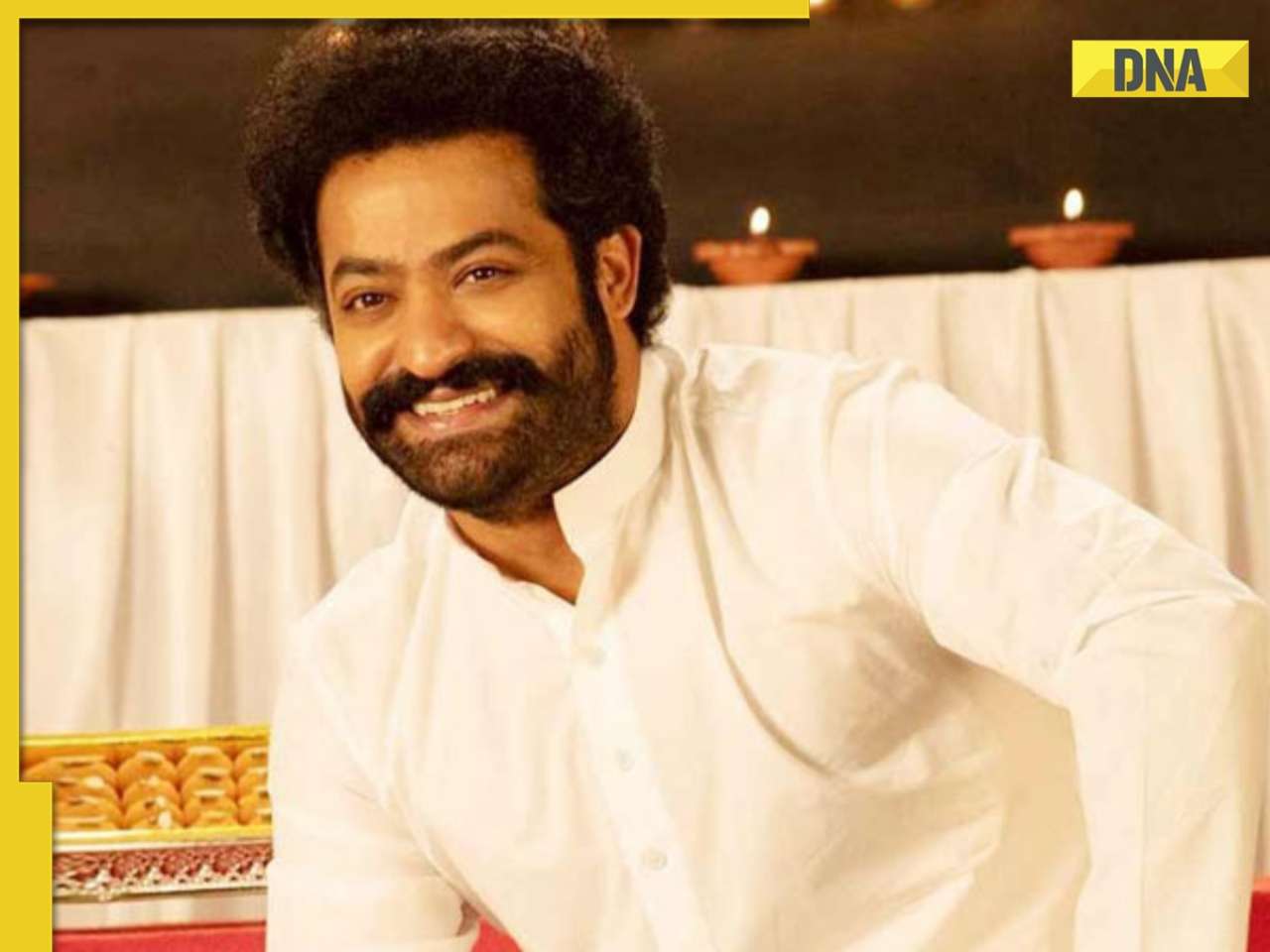
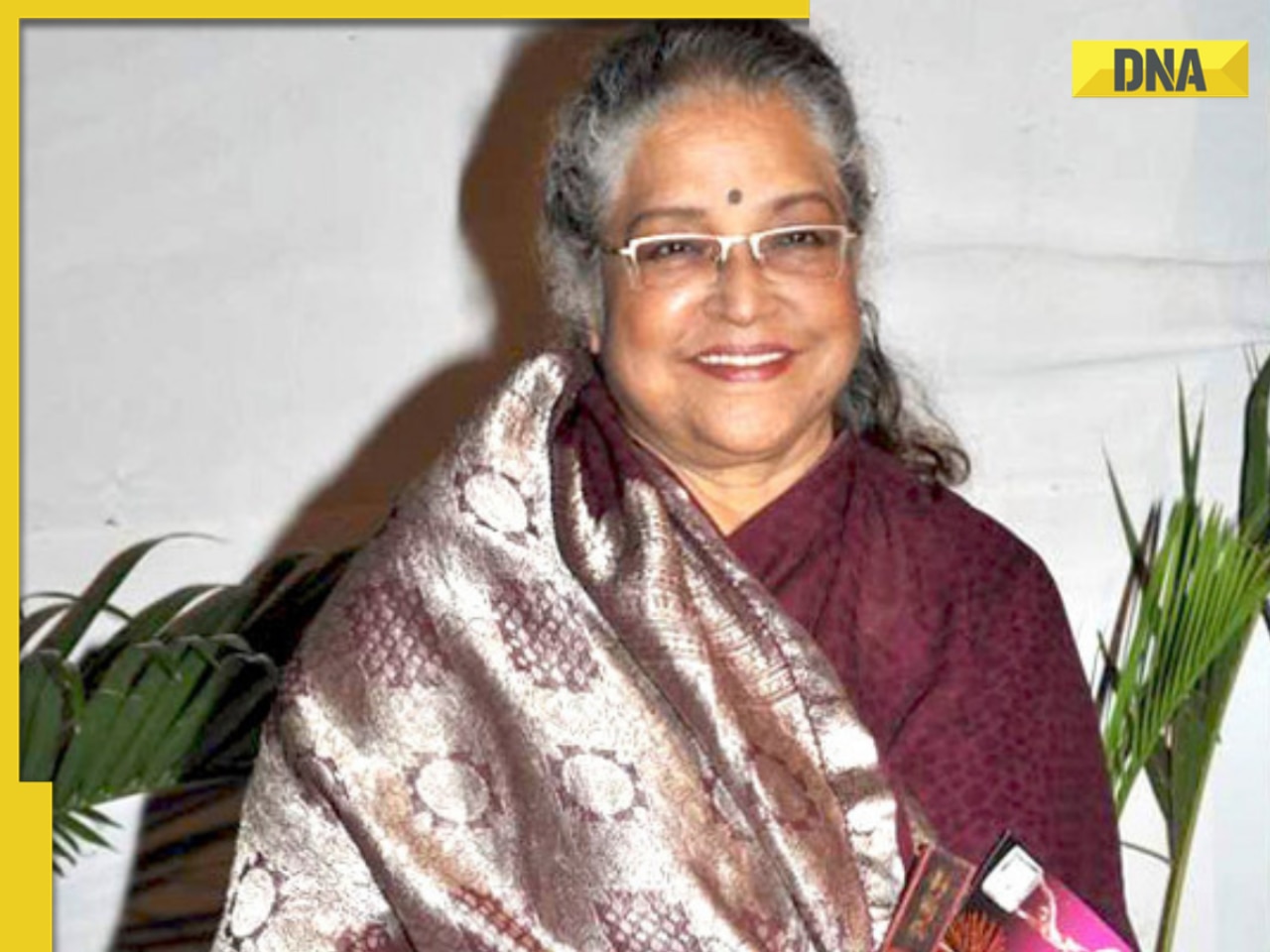

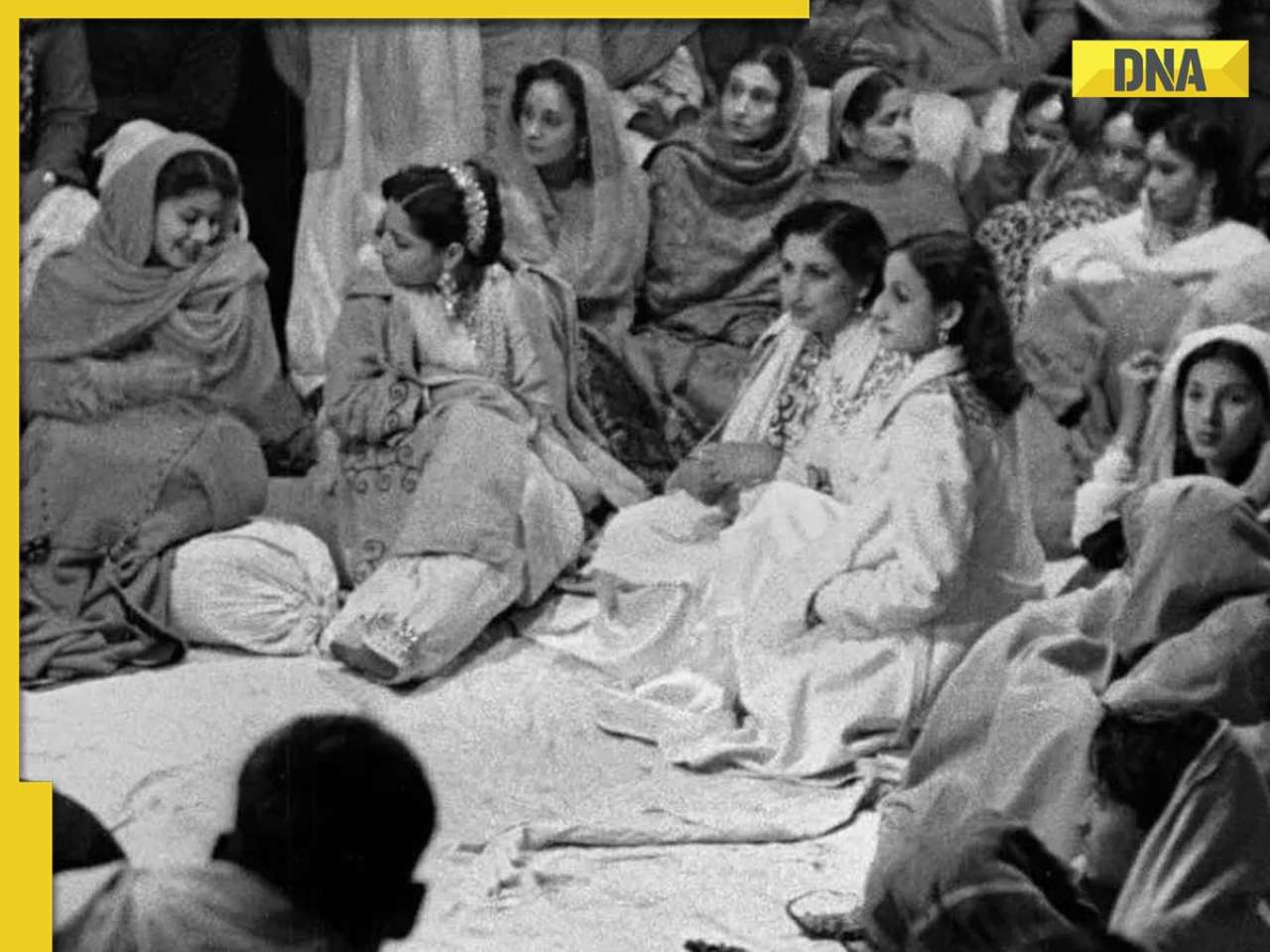





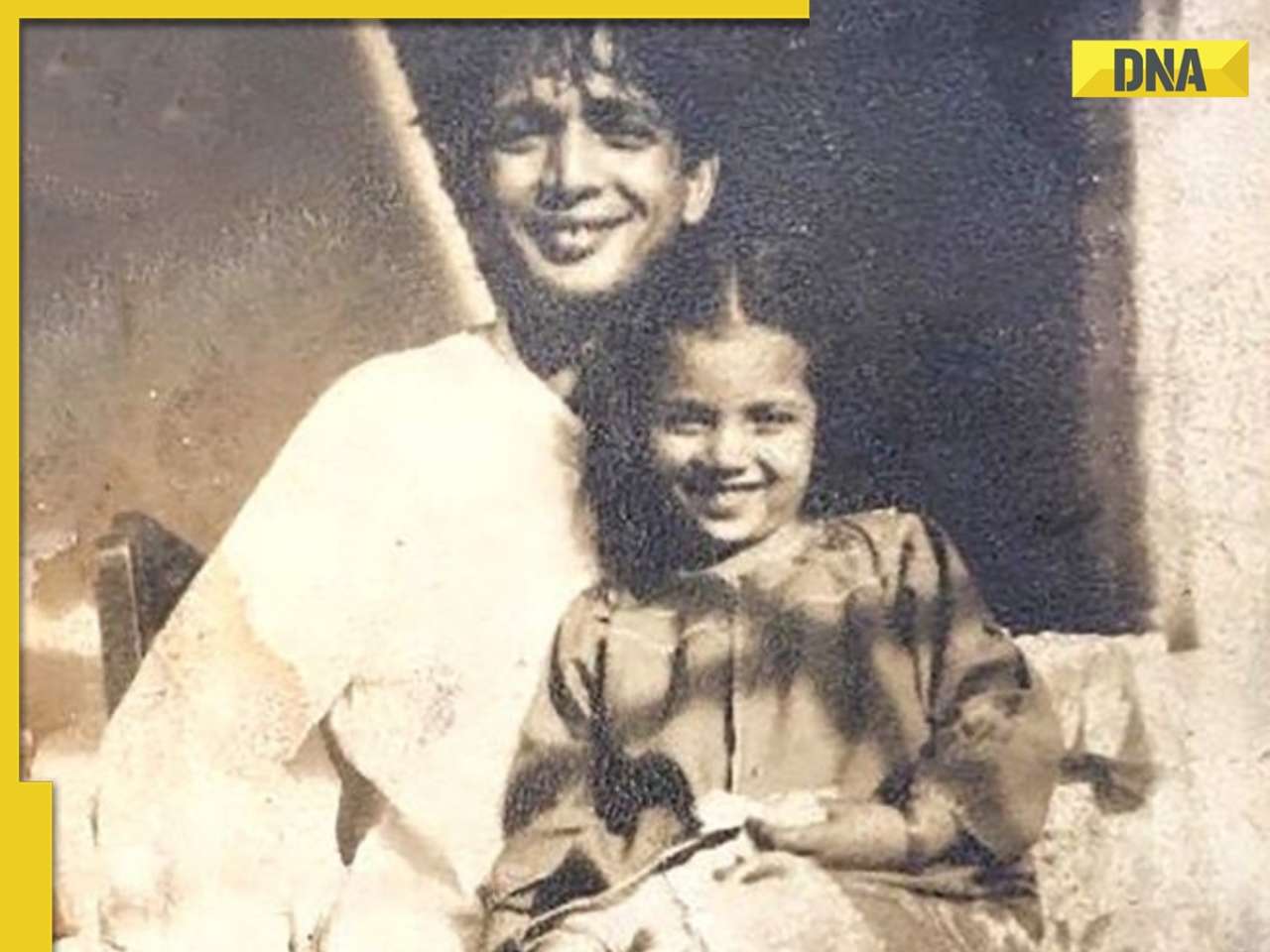
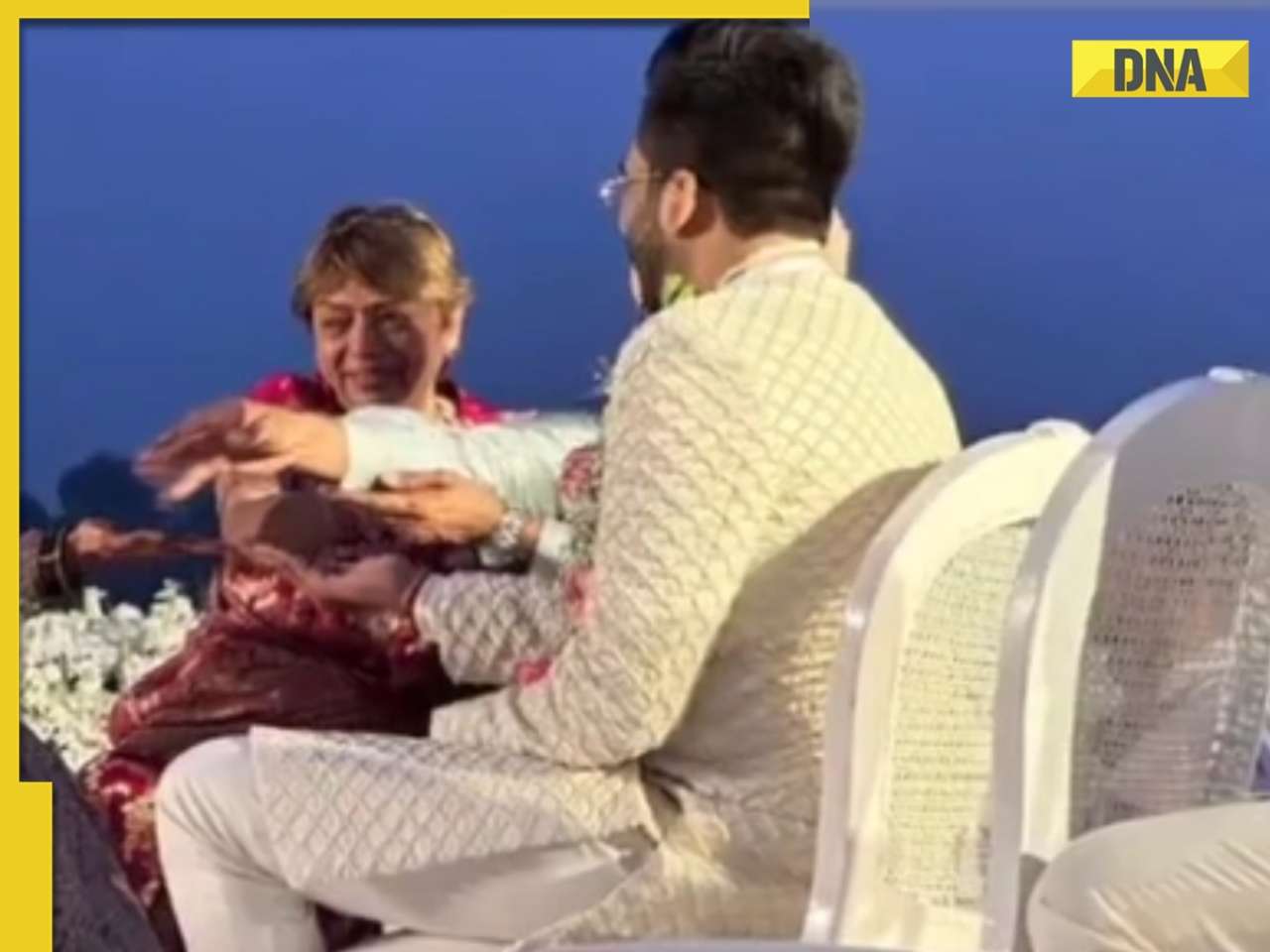





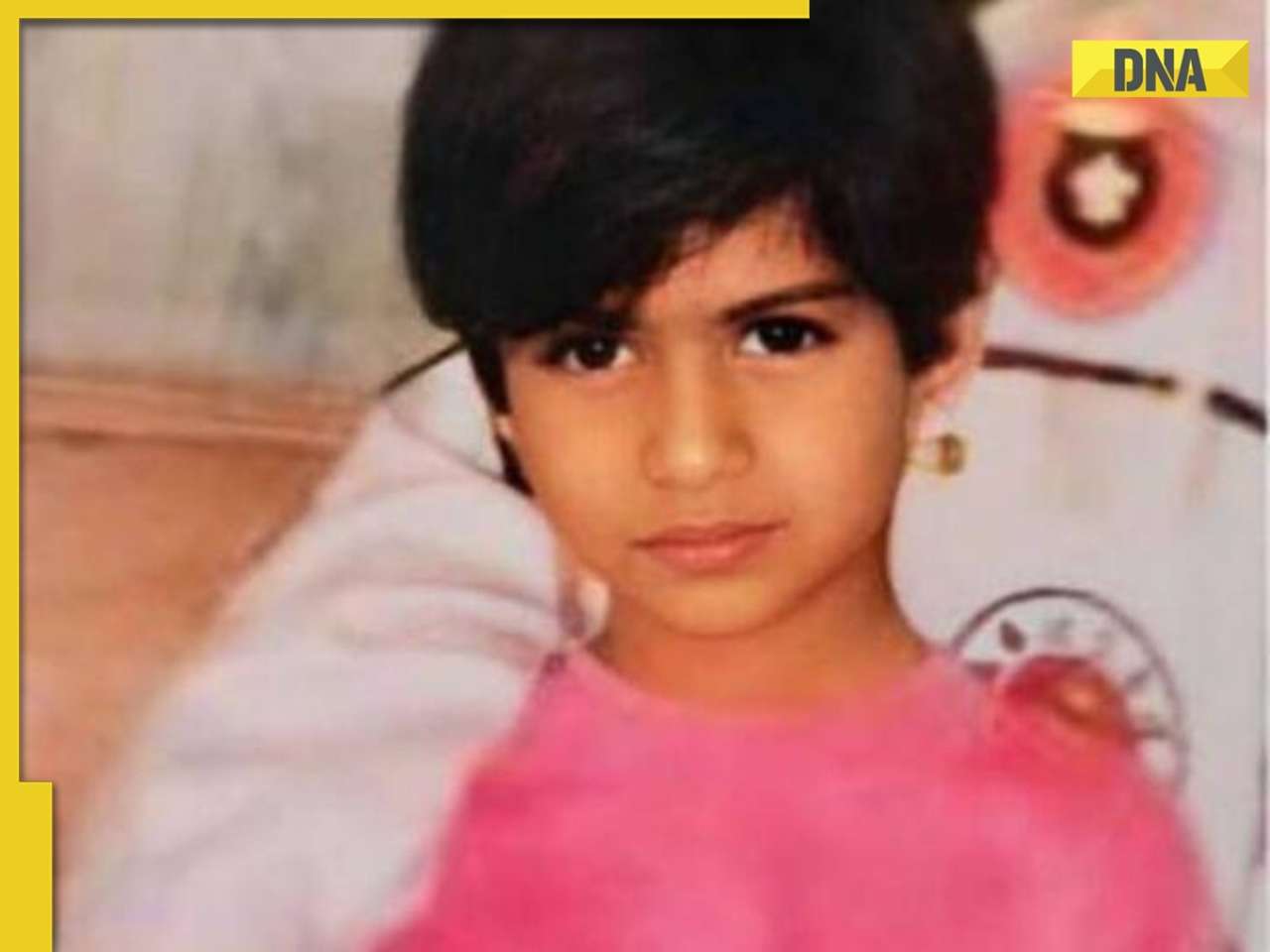









)
)
)
)
)
)